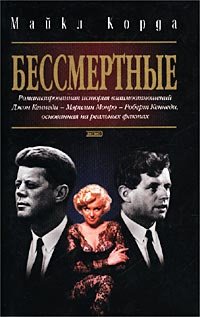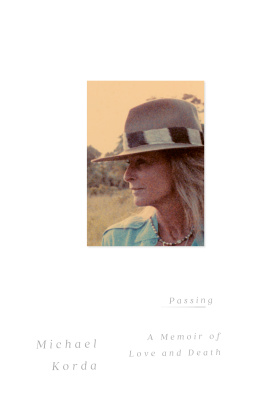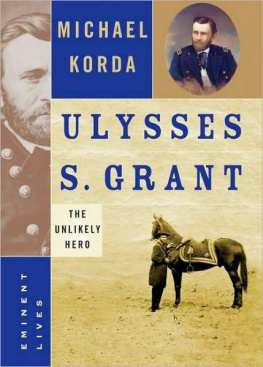CONTENTS
IT SEEMED to me when I was young that the
IN 1961 I FLEW to Los Angeles for Zolis funeral
THE VIENNA to which Alex came was not the dreamy
I WAS BORN on the opening night of The Private
MY FIRST MEMORY of Los Angeles is that of an
EVERY MORNING at ten Benjamin saw Alex to the door
WHAT THE HELL do they know? I was to ask
IT IS STILL dark when the Train Bleu reaches the
ALEX DID NOT spend as much time on the yacht
I WAS BACK with my squadron when British Lion finally
THE SUMMER of 1955, however, was not like old times
I NEVER saw him again. We had said goodbye in
ALEXS WILL was not probated until a few months after
I T SEEMED to me when I was young that the three Korda brothers led charmed lives.
When my uncle Alex traveled, he was driven straight to the steps of the airplane in his black Rolls Royce Silver Shadow after all the other passengers had boarded. If he was late the airplane was held until he arrived; ships and trains waited for him, customs and passport formalities were arranged to suit his convenience, officials rushed to make his arrivals and departures effortless and pleasant, swiftly chalking a customs mark on his white calfskin Revelation luggage and on the brassbound morocco traveling humidor with a dovetailed sliding lid and his initials, A.K., stamped in the fragrant leather. As a child, I kept pencils, rubber bands and toy soldiers in his cigar boxes, and there was always a faint aroma of cigars and cedar wood in the nursery, like a lingering presence of Alex, though it was not in fact a place he ever visited.
My uncle Zoltn traveled in lesser state, but at great inconvenience to himself and everyone else, for his health required him to move with a variety of private stores and equipmentan oxygen inhaler, plastic bags of fresh and dried California seaweed (Vair is my kelp? he was once heard to ask a bewildered porter), a sling so that he could hang himself from hotel doors to stretch his spine, and a suitcase full of medicines.
It could not be said that Zoli enjoyed traveling, but neither did he enjoy staying put. In any case, he was condemned to perpetual travel by the postwar tax laws of the United Kingdom and the United States (the former his adopted country, the latter his official residence), counting the number of days allowed to him each year in either country, and longing for the simple security of a house in Switzerland, where he could live quietly and pay no taxes, increasing his collection of gold coins and stamps, and endlessly revising the script for Daphne Du Mauriers The Kings General , which occupied his attention for the best part of ten years without engaging anyone elses enthusiasm.
Zoli had no choice. Alex found it convenient to have one American resident in the family. At the time British subjects were forbidden to take more than fifty pounds out of the country, and this sum would not have gone far to maintain the 120-foot yacht at anchor in Antibes, on which a captain and a crew of four lived in comfort and idleness the year round, the villa at nearby Biot, with its orange groves and terraces, or the intricate network of foreign film companies, with which Alex insured himself and the family against misfortune, revolution, inflation and Acts of God.
No, Zoli had to travel endlessly, like an ailing, grumbling Flying Dutchman, just as Vincent, my father, the youngest brother, had to have a chauffeur because Alex didnt trust him to drive himself. A benevolent tyrant Alex might bebenevolence was perhaps his most visible qualitybut a tyrant nonetheless.
When I was small, and we were living in London before the war, the three brothers seemed to me remote and awesome figures, my father included. His temper was the subject of many family legends. When he was a baby his tantrums were so fearsome that his exasperated parents placed him between the two frames of the traditional Central European double-windows to cry until he was too cold or tired to continue, and had been astonished when he managed to howl and shriek, unheard from behind the glass, for a whole day. These exertions turned his face red, and he was known to those who remembered the Kordas childhood days as the Red One, a phrase which puzzled many people in England, who waited in vain for some expression of Communist sympathies from my father.
Since he left the house for the studio at dawn, unwillingly chauffeured on Alexs orders, and returned long after I had been put to bed, I saw very little of him. His temper, if in fact he had one, was never discharged on me; on the contrary, I saw the lavish and disruptive side of his nature, for he usually arrived home accompanied by Hungarian film peoplescriptwriters, cameramen, set designersmysterious and exotic characters who spoke little English. They occasionally appeared in the nursery late at night, to the indignation of Nanny Low, bearing gifts that were usually judged inappropriate for children of five. These nocturnal visits were encouraged, sometimes even planned, by my father, partly to annoy Nanny, partly because he disliked the thought of children being disciplined, regimented or deprived of anything they wanted, no doubt a legacy of those hours he spent crying between the double-windows.
Nanny Lows views were more traditional. She protested, she argued, sometimes she even cried, but she gave in. She had brought up the children of peers of the realm; photographs of her charges in intricate filagreed or shagreen frames, Christmas gifts from Aspreys and Mappin & Webb, covered her dresser. Sometimes she would look wistfully at the faces in those frames: young Edward in the ribboned frock coat of the Household Brigade, the Hon. Alice just before her wedding in St. Margarets (Nanny had pressed one of the wedding flowers under the glass in one corner of the frame), young Lord Robert, looking pudgy and cross, with his dark hair slicked back (Nannys favorite child for some inexplicable reason). Life in her previous posts had been different, and at times Nanny looked back on it as a Golden Age, but in the Korda atmosphere she was gradually corrupted. My father and his friends turned their lavish charm on her, brought her small presents, introduced her to Hungarian cooking, sometimes even persuaded her to take a glass of wine, with the result that I was often allowed to sit at the dinner table until midnight, eating strudel (Oh, Mr. Korda, its not right, hell be sick in the morning!) while my father and his friends argued in Hungarian, waiting for the magic moment when my mother, breathless, beautiful and smelling of Schiaparelli and grease paint, returned home from the theater and instantly became the center of attention. Then Nanny was dismissed, and I could sit with my mother and listen to her laugh. She would carry me upstairs and put me to bed after everybody had gone, while my father stood in the doorway of the nursery, momentarily domesticated.










